UKFT research trip to textile recycling plant in Sweden
10/10/2023
The UKFT team recently visited Renewcell’s textile-to-textile recycling plant in Sweden, as part of the Automatic-sorting for Circular Textiles Demonstrator (ACT UK) project.
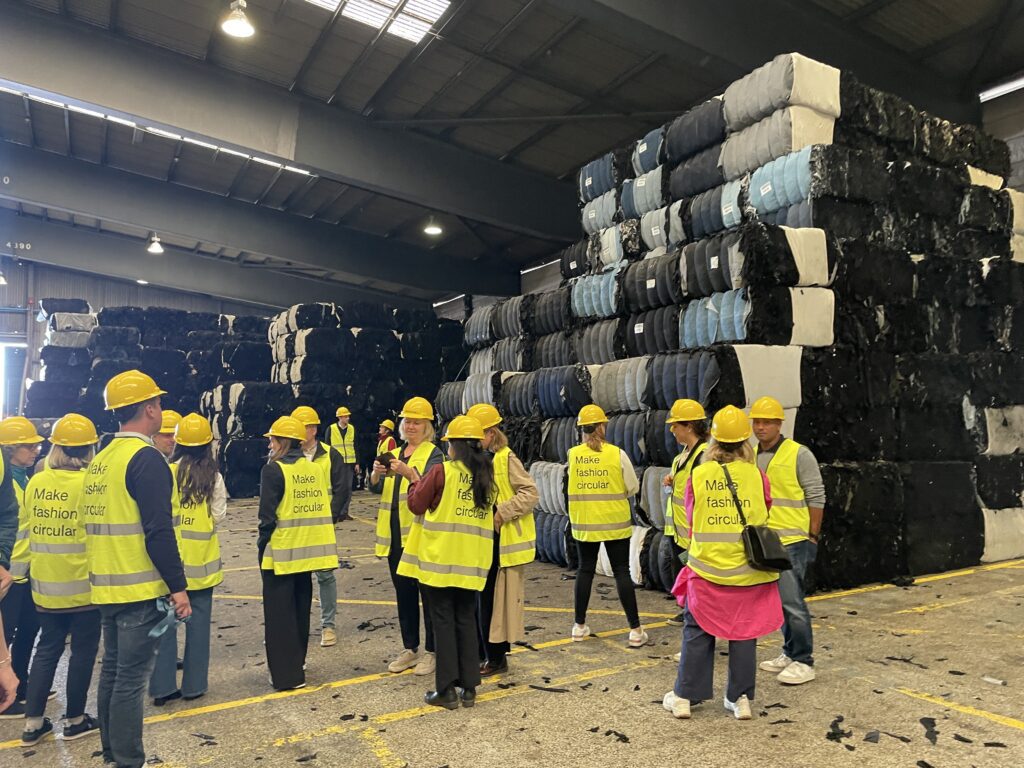
UKFT’s Lauren Junestrand and Flor Canencia visited the site, which is one of the only industrial plant dedicated to textile-to-textile recycling, alongside the H&M Group, an investor in Renewcell, and environmental not-for-profit Canopy. They saw how Renewcell makes Circulose, a brand of dissolving pulp from 100% textile waste with high cellulose content, such as worn-out cotton jeans and cotton production scraps.
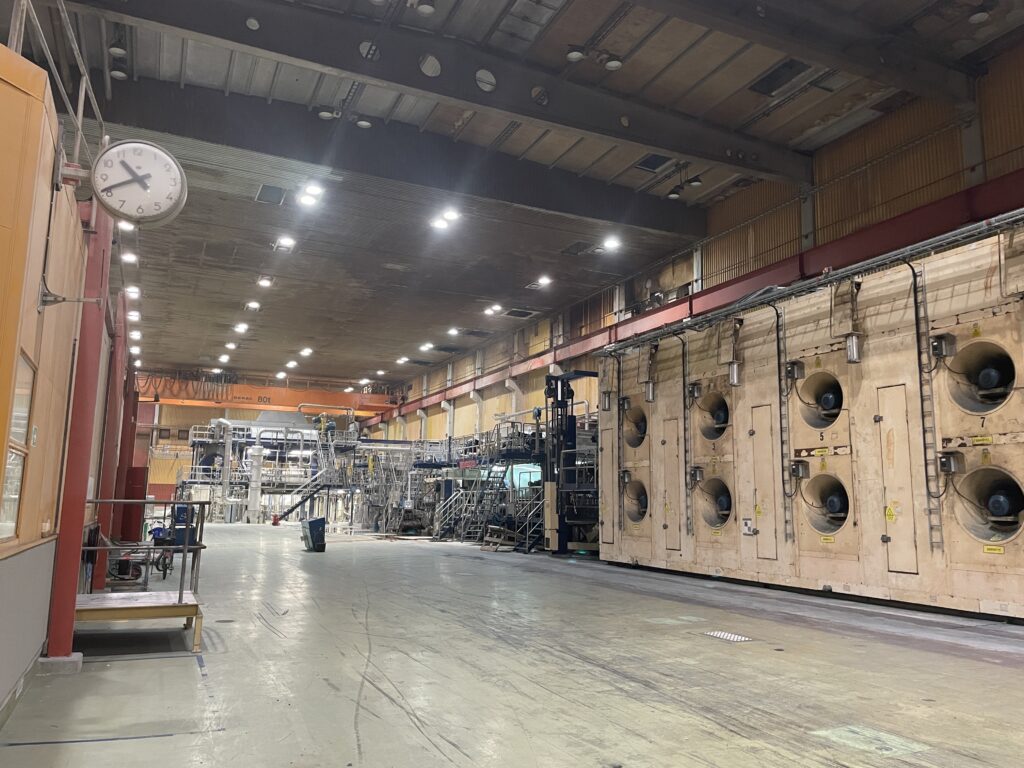
The dissolving pulp cellulose is used to make viscose, lyocell, modal, acetate other types of regenerated fibres (also known as man-made cellulosic fibres), which can then be spun into new yarns, woven or knitted into fabrics and finally cut and sewn into new high-quality textile products.
The process has been designed to ensure Circulose offers similar properties to virgin products.
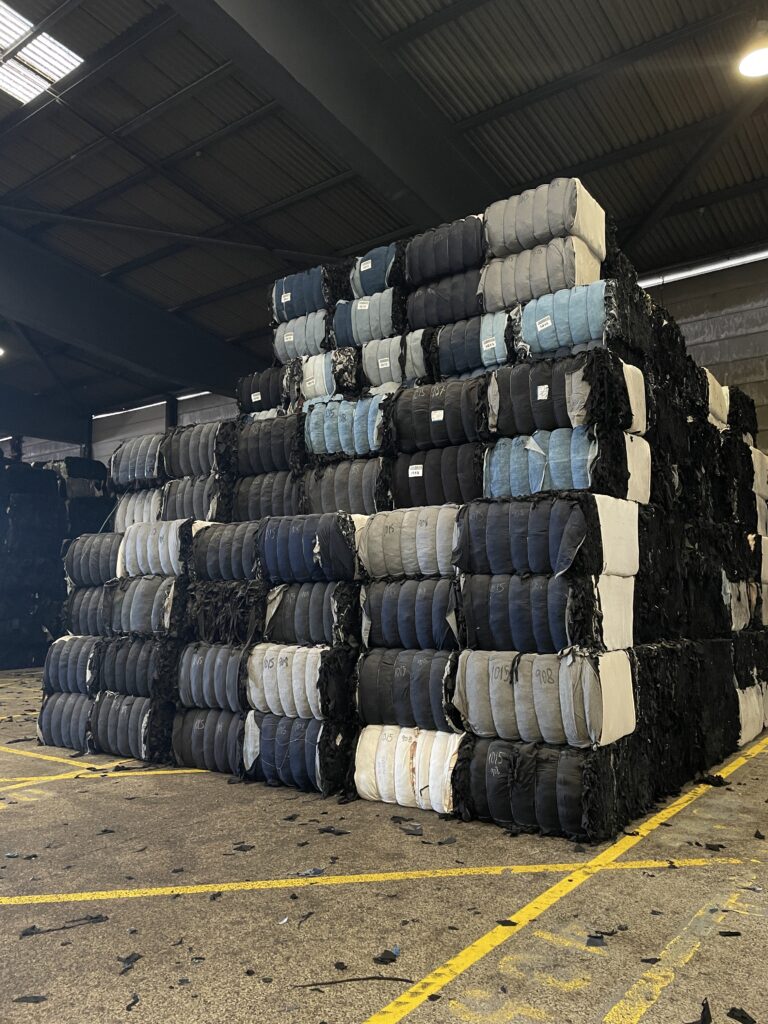
Initially Renewcell aimed to use post-consumer textile waste but realised that the majority of feedstock available is on a pre-consumer level, with the current split at 20% post-consumer and 80% from pre-consumer. The current feedstock is received from a network of more than 140 global sorters (including Bangladesh, Pakistan and Turkey) and the firm is looking to build a local sorter network.
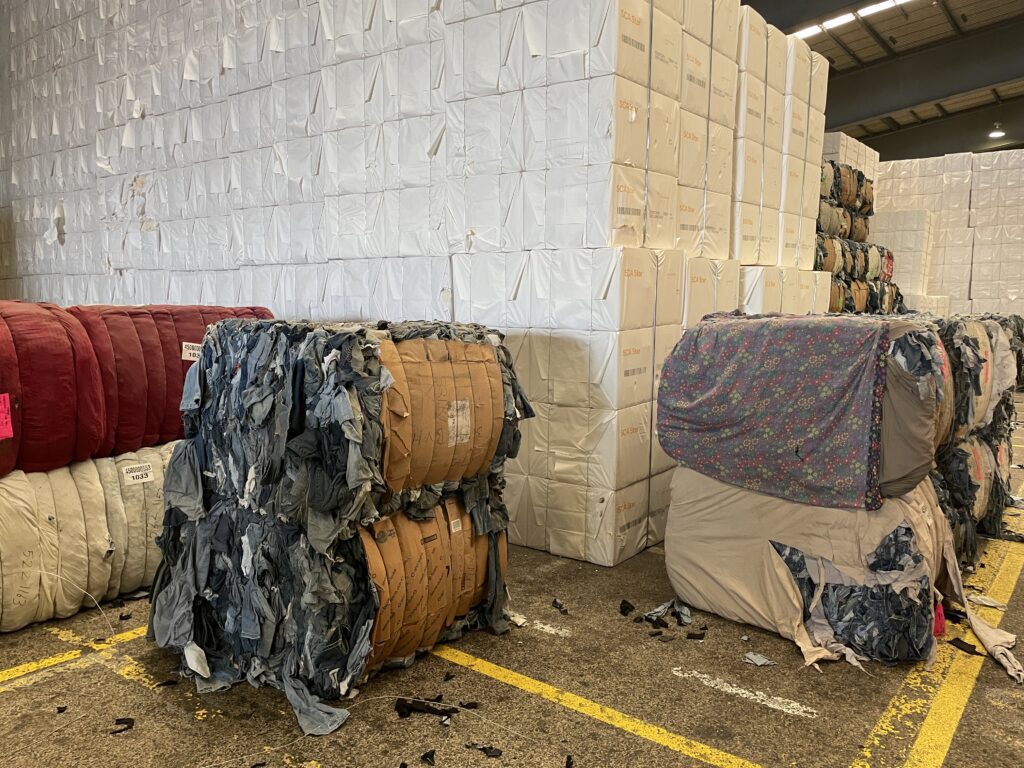
The plant infrastructure uses 100% renewable energy, with bark as an energy source, and the plant has a wastewater treatment facility. The facility is near a port in which they take textiles in and out (assuming that transport by sea is less polluting than transport by road).
The plant is built for 120,000 tonnes of textiles and is currently using 60,000 tonnes of textiles, equating to 5,000 tonnes a month. They are going slowly, taking the time to run and test, the team explained.
Renewcell’s value-chain:
- Waste
- Dry treat
- Wet treat
- Drying and bailing
- Fibre or filament production
- Customer
As part of the event, Marlene Bartes from the EU Commission presented the EU Transition Pathways for the Textile Ecosystem, which launched on 6 June 2023 and underlines the urgent need for a faster, greener and digital transition for textiles.
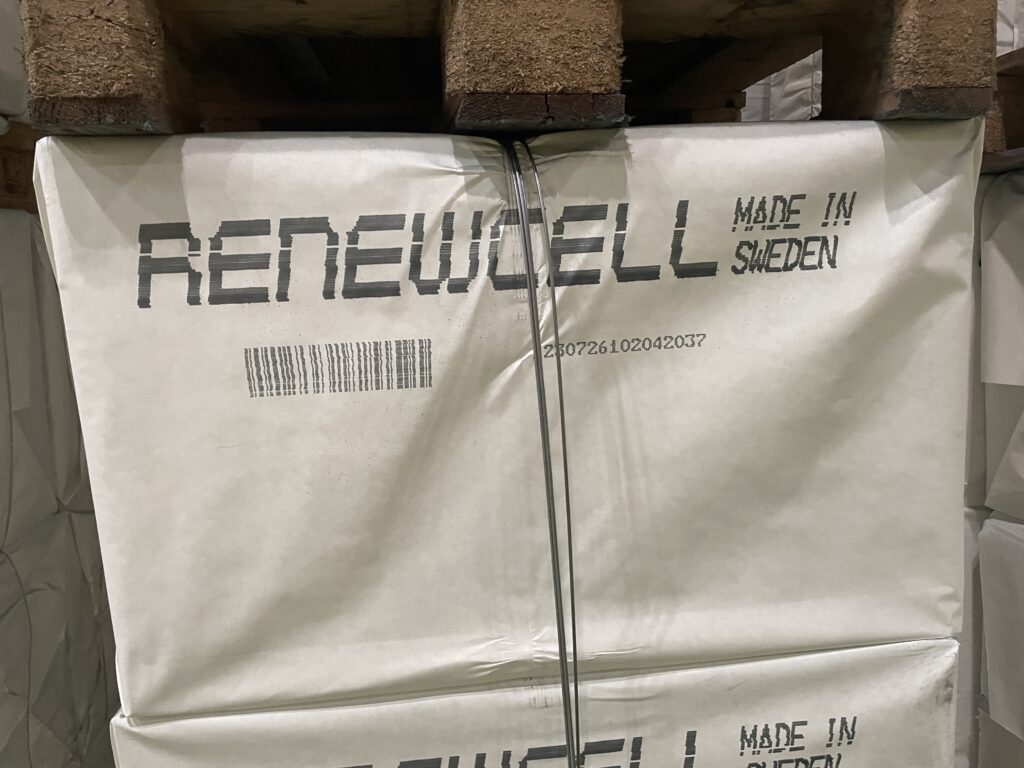
The trip comes as UKFT is leading a £4 million project to develop and pilot a pioneering fully-integrated, automated sorting and pre-processing demonstrator for post-consumer waste textiles (ATSP), which could eventually divert thousands of tonnes from landfill each year.
ACT UK brings together a consortium of recycling technologies, textile collectors/sorters, academia, manufacturers, industry associations, technologists and brands/retailers, supported with funding from Innovate UK. It is part of a broader Circular Fashion Programme supported by Innovate UK, the Arts and Humanities Research Council (AHRC) and the Natural Environment Research Council (NERC), all part of UK Research and Innovation (UKRI).
The Automatic-sorting for Circular Textiles Demonstrator (ACT UK)
Find out more about UKFT’s innovation, R&D and sustainability for the UK fashion and textile industry here.
